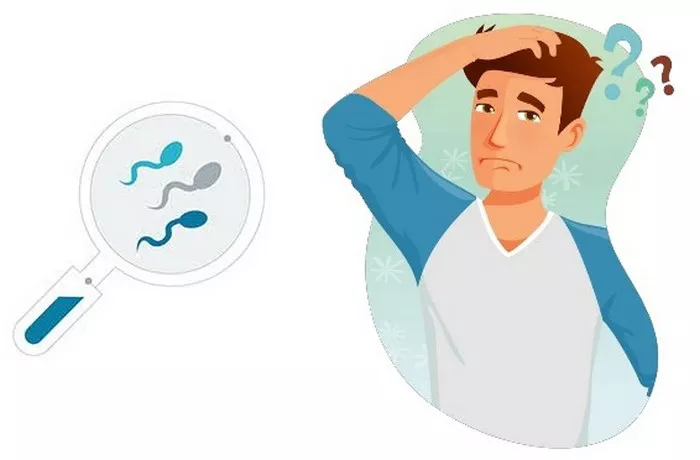Finasteride, marketed under the brand names Propecia and Proscar, is a medication primarily used to treat male pattern hair loss (androgenetic alopecia) and benign prostatic hyperplasia (BPH), a condition in which the prostate gland enlarges. It belongs to a class of medications known as 5-alpha-reductase inhibitors, which work by blocking the conversion of testosterone into dihydrotestosterone (DHT), a hormone involved in the development of these conditions. By reducing DHT levels, finasteride can slow hair loss and shrink the prostate gland, relieving symptoms of BPH.
Finasteride and Male Fertility
One of the concerns surrounding finasteride use is its potential impact on male fertility. While finasteride is generally well-tolerated, some studies suggest that it may affect sperm count and quality in certain individuals. Research indicates that finasteride can lead to a decrease in semen volume, sperm concentration, and sperm motility, which are important factors in male fertility. However, the extent of these effects can vary among individuals, and not all users may experience significant changes in fertility parameters.
Scientific Studies and Evidence
Several studies have investigated the relationship between finasteride use and male fertility. One notable study published in the Journal of Clinical and Aesthetic Dermatology reported a case of successful pregnancy after discontinuation of finasteride in a man who had previously been diagnosed with infertility. The case highlighted the potential reversible effects of finasteride on male fertility, suggesting that discontinuing the medication may lead to improvements in sperm parameters and reproductive outcomes. While this study offers promising insights, further research is needed to fully understand the effects of finasteride on male fertility and the mechanisms involved.
Personal Experiences
Anecdotal reports and case studies from individuals using finasteride have provided mixed perspectives on its impact on fertility. Some users have reported experiencing changes in semen quality and fertility while taking finasteride, while others have not noticed any significant effects. Personal experiences with finasteride may vary widely, depending on individual factors such as dosage, duration of use, and underlying health conditions. It is essential for individuals considering finasteride to discuss their concerns with a healthcare professional and weigh the potential risks and benefits based on their specific circumstances.
Medical Guidance
Medical professionals recommend that men planning to conceive should consult with their healthcare provider before starting finasteride or any other medication. While finasteride is generally considered safe for most individuals, it is essential to consider its potential effects on fertility, especially for those actively trying to conceive. Healthcare providers can offer personalized guidance and recommendations based on individual health status, fertility goals, and treatment preferences. In some cases, alternative treatment options may be considered to address hair loss or prostate issues while minimizing potential impacts on fertility.
Alternatives and Solutions
For individuals concerned about the potential effects of finasteride on fertility, alternative treatments for hair loss or prostate issues may be explored. Minoxidil, a topical medication commonly used to treat male pattern baldness, is one option that does not affect hormone levels and is not associated with fertility issues. Additionally, lifestyle modifications, such as maintaining a healthy diet and managing stress, may help promote overall well-being and support reproductive health. It is important for individuals to discuss their treatment options with a healthcare professional to determine the most appropriate approach based on their individual needs and preferences.
FAQs
Q1: Does finasteride always cause infertility in men?
A1: No, finasteride does not always cause infertility in men. While some studies suggest that it may affect sperm parameters, not all users experience significant changes in fertility. Individual responses to finasteride can vary, and factors such as dosage, duration of use, and underlying health conditions may influence its effects on fertility.
Q2: Can finasteride be safely used by men who are trying to conceive?
A2: It is recommended that men planning to conceive consult with their healthcare provider before starting finasteride or any other medication. While finasteride is generally considered safe for most individuals, its potential effects on fertility should be considered, especially for those actively trying to conceive. Healthcare providers can offer personalized guidance and recommendations based on individual health status and fertility goals.
Q3: Are there any natural alternatives to finasteride for treating hair loss?
A3: Yes, there are several natural alternatives to finasteride for treating hair loss. Minoxidil, a topical medication, is one option that is commonly used to promote hair growth. Additionally, lifestyle modifications such as maintaining a healthy diet, managing stress, and avoiding harsh hair treatments may help support hair health and reduce hair loss.
Q4: Can finasteride be used by women?
A4: No, finasteride is not recommended for use by women, especially those who are pregnant or may become pregnant. Finasteride can cause birth defects in male fetuses, and exposure to finasteride during pregnancy should be avoided. Women should not handle crushed or broken finasteride tablets, as the medication can be absorbed through the skin and may harm an unborn baby.
Q5: How long does it take for finasteride to start working?
A5: It may take several months of consistent use for finasteride to start showing visible results in hair growth. Individuals using finasteride for benign prostatic hyperplasia (BPH) may experience relief from symptoms such as frequent urination within a few weeks to months of starting treatment. Consistency with medication use is key to achieving optimal results with finasteride therapy.
























